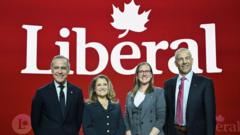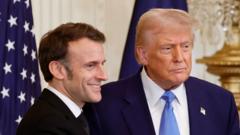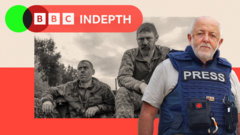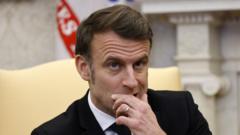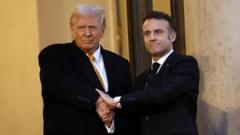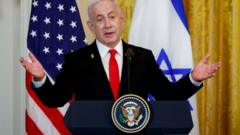In a bold move signaling Britain’s commitment to defense, Prime Minister Keir Starmer revealed a strategy to elevate military expenditure to 2.5 percent of GDP by 2027, increasing to 3 percent by the next government term, amid pressures from NATO and the upcoming meeting with President Trump.
UK Plans Significant Military Spending Increase Amidst NATO Pressures

UK Plans Significant Military Spending Increase Amidst NATO Pressures
Prime Minister Keir Starmer announces plans to boost UK defense spending to address security challenges and align with NATO expectations.
The UK government detailed plans on February 25, 2025, to raise military spending in Parliament, emphasizing its intention to strengthen national security in light of rising geopolitical tensions. This increment, from the current 2.3 percent to 2.5 percent, and ultimately to 3 percent by 2034, will involve a substantial annual increase of 13.4 billion pounds ($17 billion) allocated towards defense.
Starmer’s commitment follows longstanding demands from President Trump for increased financial contributions from European allies to support shared security commitments within NATO. The UK government aims to fund this increase through reducing overseas development aid from 0.5 percent to 0.3 percent of GDP, a decision Starmer expressed regret over, citing the primacy of national defense. “In times like these, the defense and security of the British people must always come first,” he stated.
As NATO Secretary General Mark Rutte urged members to allocate more than 3 percent of their economic output to defense programs, Starmer reaffirmed the pivotal role of NATO and trans-Atlantic alliances in European security. This stance presents a notable contrast with the newly appointed German Chancellor, Friedrich Merz, who has indicated a desire for Europe to pursue an independent security strategy apart from the United States.
The developments in military spending represent a critical response to the evolving security landscape, and the international community is keenly observing the implications of Starmer's planned meeting with Trump.
This narrative could evolve as further information becomes available.
Starmer’s commitment follows longstanding demands from President Trump for increased financial contributions from European allies to support shared security commitments within NATO. The UK government aims to fund this increase through reducing overseas development aid from 0.5 percent to 0.3 percent of GDP, a decision Starmer expressed regret over, citing the primacy of national defense. “In times like these, the defense and security of the British people must always come first,” he stated.
As NATO Secretary General Mark Rutte urged members to allocate more than 3 percent of their economic output to defense programs, Starmer reaffirmed the pivotal role of NATO and trans-Atlantic alliances in European security. This stance presents a notable contrast with the newly appointed German Chancellor, Friedrich Merz, who has indicated a desire for Europe to pursue an independent security strategy apart from the United States.
The developments in military spending represent a critical response to the evolving security landscape, and the international community is keenly observing the implications of Starmer's planned meeting with Trump.
This narrative could evolve as further information becomes available.



